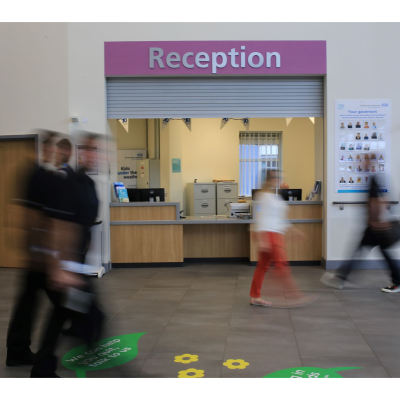Public perceptions of the NHS: a winter of discontent
Public perceptions of the NHS: a winter of discontent
23 February 2023
About 13 mins to read

Key points
- The NHS is under extreme strain and debate about the future of the health system is growing louder. As political parties look ahead to the next general election, understanding what the public thinks should help inform thinking on NHS funding and reform.
- This long read examines public perceptions and expectations of the NHS. We present findings from the third wave of our programme of polling research with Ipsos that tracks the public’s views on health and social care in the UK every 6 months.
- Our latest survey was conducted between 24 and 30 November 2022. We surveyed 2,063 people aged 16 and older in the UK via Ipsos’ KnowledgePanel, a random probability online panel.
- We found that the public is deeply negative about the state of the NHS. Only a third (33%) agree that the NHS is providing a good service nationally, while nearly half (47%) disagree.
- 63% think the general standard of care has deteriorated in the last 12 months, while just 7% think it has improved. Expectations for the next 12 months are similarly pessimistic: 62% think NHS standards will decline, while 9% expect standards to improve.
- Across the UK, just 10% think the national government responsible for the NHS where they live has the right policies for the NHS. In England, only 8% think the UK government has the right policies for the health service – compared to 28% in Scotland and 19% in Wales who think their devolved governments have the right approach.
- But the public has clear priorities for the future: addressing the pressure on or workload of NHS staff (40%), increasing the number of staff in the NHS (39%) and improving waiting times for routine services (35%) are their top priorities for the NHS.
- Support for the founding principles of the NHS remains as strong as ever. Most people still believe that the principles of the NHS being free at the point of delivery (90%), providing a comprehensive service (89%) and being funded through taxation (84%) should continue to apply today. But they are less sure whether these principles will remain intact in 5 years’ time.
- While both main parties have so far preferred to talk about reforming the health service rather than tax rises or spending increases, 82% of the public think the NHS needs an increase in funding, including 63% of Conservative voters.
Further reading
Public perceptions of the NHS: a winter of discontent
1. Introduction
2. People are deeply concerned about the state of the NHS
3. Confidence in government policies for the NHS reaches a new low
4. Support for the NHS founding principles remains rock solid
5. The public backs investment to improve services
6. Workforce and waiting times remain the public’s priorities
7. Conclusion
Work with us
We look for talented and passionate individuals as everyone at the Health Foundation has an important role to play.
View current vacanciesThe Q community
Q is an initiative connecting people with improvement expertise across the UK.
Find out more

